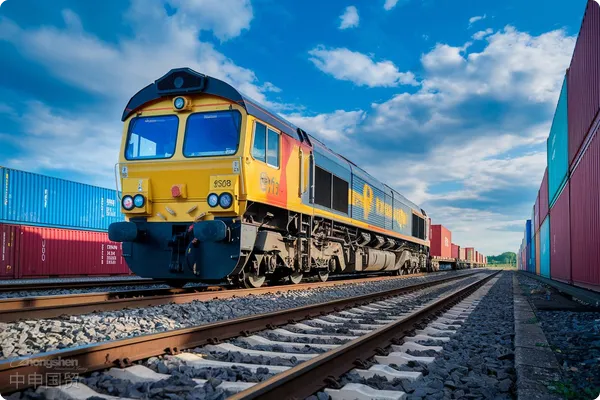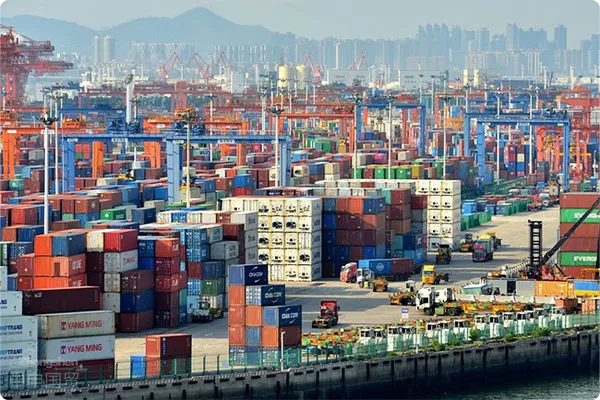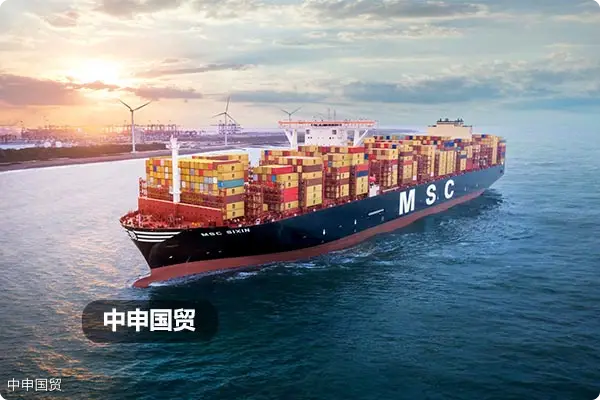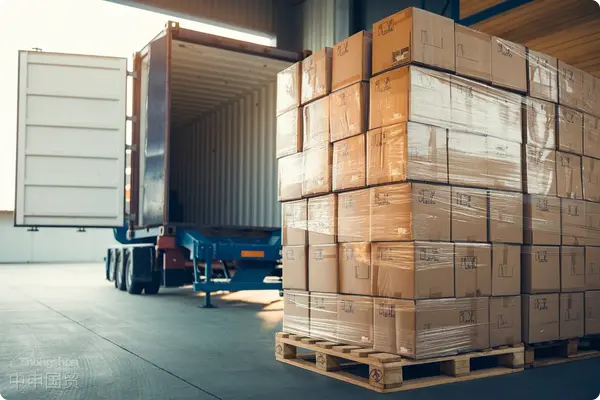- Shanghai Zhongshen International Trade Co., Ltd. - Two decades of trade agency expertise.
- Service Hotline: 139 1787 2118
In theInternational LogisticsIn it, the situation of steel coils rusting due to the condensed water in the container is quite common. However, when such losses occur, insurance companies often refuse to pay compensation, causing enterprises to suffer unnecessary losses. How to avoid this kind of transportation risk and ensure the safety of goods? This article answers your questions and provides effective preventive strategies.
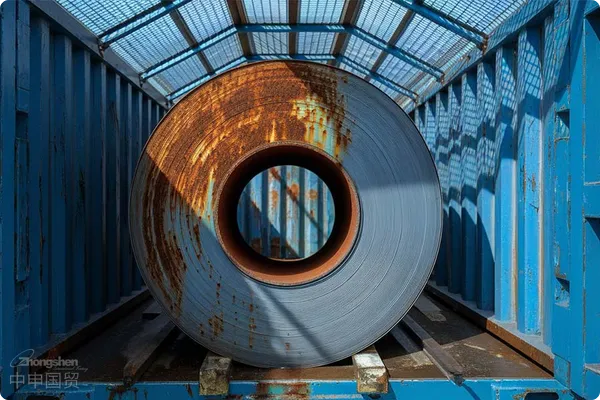
The rusting of steel coils caused by the condensed water (commonly known as hold sweat) in the container is usually not within the scope of compensation of cargo transportation insurance, even if all risks are insured.
Reason analysis
Liability attribution of condensed water
The generation of condensed water is usually caused by the temperature difference change, which is due to environmental factors during the transportation process. This situation is usually regarded as a packaging problem or improper operation, rather than an accident caused by external risks. Although all risks cover a variety of risks, they usually do not include losses caused by improper packaging, the characteristics of the goods themselves (such as easy to rust), etc.
Limitations of insurance clauses
In most transportation insurance clauses, the liability for rust damage is usually excluded. Because rusting is considered to be preventable through proper packaging and transportation methods. Therefore, even if all risks are purchased, insurance companies usually do not bear the rust losses caused by condensed water.
Misunderstanding of WPA
WPA mainly covers water damage losses of goods caused by external reasons (such as container water ingress) during the transportation process. The condensed water caused by hold sweat is an internal phenomenon caused by changes in the transportation environment and does not belong to external reasons, so it is usually not within the scope of compensation of WPA.
Suggestions for preventive measures
In view of the difficulties in insurance claims, preventive measures should be strengthened to reduce the risk of losses:
Strengthen packaging:
In addition to the waterproof plastic paper and desiccants already used, the following measures can also be considered:
- Wrap the steel coils with thicker and more durable waterproof materials.
- Add a layer of moisture-proof paper or water-absorbing material on the outer layer of the steel coils to further prevent the penetration of condensed water.
- Lay a waterproof film at the bottom and around the container to prevent condensed water from coming into contact with the steel coils.
Select appropriate transportation time and route:
Try to avoid seasons with large temperature differences between winter and summer, or choose shipping routes with smaller temperature changes to reduce the possibility of drastic temperature changes in the container.
Strengthen the use of desiccants:
- Reasonably increase the quantity of desiccants according to the size of the container and the type of goods.
- Use desiccants with stronger moisture absorption performance, and regularly check the moisture absorption status of desiccants to ensure continuous effectiveness throughout the transportation process.
Preheat the container in advance:
If conditions permit, preheat the container before loading, or carry out dehumidification treatment before sealing after loading to reduce the humidity in the container.
Negotiate with the customer
If the customer accepts cutting off the rusty part, it is recommended to communicate with the customer as soon as possible to discuss how to properly handle the damaged part. Consider providing discounts, adding compensation in future orders, etc., to maintain a good cooperative relationship.
Conclusion
Prevention is the best way to ensure the safety of goods. By optimizing packaging, moisture-proof strategies and reasonable transportation arrangements, you can effectively reduce the risk of steel coils rusting due to condensed water and reduce unnecessary losses. By taking more stringent protective measures, similar problems can be effectively prevented in the future.
Related Recommendations
? 2025. All Rights Reserved. 滬ICP備2023007705號-2  PSB Record: Shanghai No.31011502009912
PSB Record: Shanghai No.31011502009912
